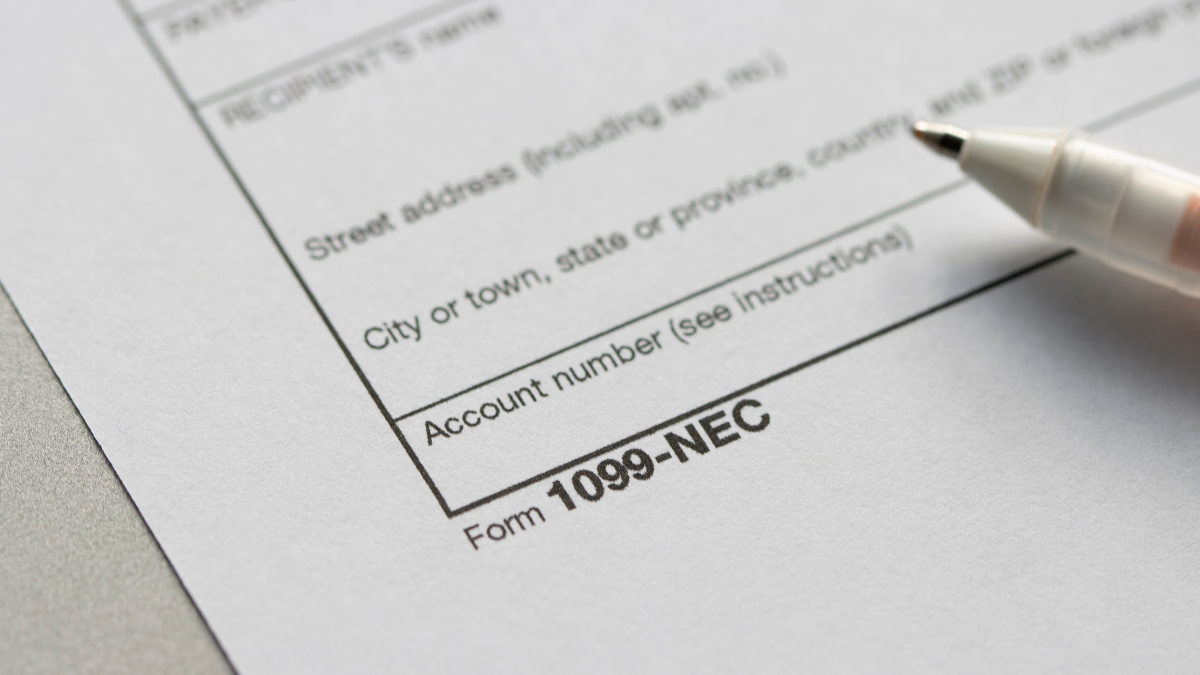1099 Reporting Requirements

As the year draws to a close, businesses must focus on the upcoming tax season. One crucial aspect that demands careful consideration is the IRS's 1099 reporting requirements. The
Internal Revenue Service mandates businesses to submit informational returns for specific payments made throughout the year. This article provides a comprehensive overview of the filing requirements for various 1099 forms, including due dates and potential penalties for
incorrect filing. Whether you're a seasoned entrepreneur or navigating tax obligations for the
first time, understanding these requirements is vital for smooth compliance and avoiding
penalties.
1099 REPORTING
The Internal Revenue Service requires businesses to submit informational returns when
certain payments (or withholding) are made during the year. The following is a summary of
filing requirements for some of the different 1099 forms, the due dates, and possible penalties
for incorrect filing.
Form 1099 -MISC
Miscellaneous Income
File Form 1099-MISC for each person to/for whom you have:
- Paid at least $600 in rents, prizes and awards, other income payments, medical and health
care payments, crop insurance proceeds, or, generally, the cash paid from a notional
principal contract to an individual, partnership, or estate - Paid gross proceeds of $600 or more to an attorney, regardless of the entity type. This
refers to proceeds awarded as a settlement. Fees to an attorney are reported on Form
1099-NEC - Paid any fishing boat proceeds
- Paid at least $10 in royalties or broker payments in lieu of dividends or tax-exempt interest
- Section 409A deferrals of at least $600 for the nonemployee under all nonqualified plans
- Nonqualified deferred compensation
- Sales totaling $5,000 or more of consumer products for resale, on buy-sell, deposit-
commission, or any other basis. Payors may use form 1099-MISC or 1099-NEC to report
this information.
Only payments made in the course of your trade or business require filing of Form 1099-MISC.
Personal payments are not required to be reported.
Generally Form 1099-MISC is not required for payments made to corporations including S-
Corporations, payments made by credit card, rent paid to real estate agents, payments of less
than $600, or business travel allowances paid to employees.
For more information, visit https://www.irs.gov/instructions/i1099mec
Form 1099-NEC
Nonemployee Compensation
File Form 1099-NEC for each person to/for whom you have:
- Paid at least $600 for services performed by someone who is not your employee, including
parts and materials - Paid at least $600 in cash payments for fish purchased from anyone engaged in the trade
or business of catching fish - Paid at least $600 to an attorney for legal services
- Withheld any federal income tax under the backup withholding rules regardless of the
amount of the payment
Only payments made in the course of your trade or business require filing of Form 1099-NEC.
Personal payments are not required to be reported.
Generally Form 1099-NEC is not required for payments made to corporations including S-Corporations, payments made by credit card, rent paid to real estate agents, payments of less
than $600.
For more information, visit https://www.irs.gov/instructions/i1099mec
Form 1099-INT
Interest Income
File Form 1099-INT for each person to/for whom you have:
- Paid more than $600 in interest in the course of your trade or business
- Withheld and paid any foreign tax on interest, regardless of the amount of the payment
- Withheld (and did not refund) any federal income tax under the backup withholding rules,regardless of the amount of the payment
Only interest that is paid in the course of your trade or business is reported on form 1099-INT.
Form 1099-INT does not need to be filed for payments made to exempt recipients, including
corporations, or for interest excluded from reporting. Payments to banks or credit unions are not reportable.
For more information, visit https://www.irs.gov/instructions/i1099int
Form 1099-DIV
Dividends and Distributions
File Form 1099-DIV for each person to/for whom you have:
- Paid dividends (including capital gain dividends and exempt-interest dividends) and other
distributions on stock of $10 or more - Withheld and paid any foreign tax on dividends and other distributions on stock
- Withheld any federal income tax on dividends under the backup withholding rules
- Paid $600 or more as part of a liquidation
Form 1099-DIV is required for all taxable capital gains and dividends paid to an investor, even
if they have been reinvested without being paid directly to the investor. This also applies to
non-taxable distributions, federal income tax withheld, foreign tax paid and foreign source
income from each investment account held by a fund company. Form 1099-DIV does not need
to be filed for payments made to exempt recipients, including corporations, or for dividends
excluded from reporting.
For more information, visit https://www.irs.gov/instructions/i1099div
Form 1099-K
Payment Card and Third Party Network Transactions
A payment settlement entity (PSE) must file Form 1099-K for payments made in settlement of
reportable payment transactions for each calendar year. Payments you make that would
otherwise have qualified as reportable on a 1099 do not need to be reported if paid by credit
card. The PSE is responsible for reporting these payments.
For more information, visit http://www.irs.gov/pub/irs-pdf/i1099k.pdf
Exceptions
There are exceptions for all of these informational returns, please refer to the links for further
instructions.
Due Dates
Copy B of the 1099-INT, 1099-DIV, 1099-MISC, 1099-NEC, and 1099-K forms should be provided
to the recipient by January 31, 2024.
Copy A of the 1099-NEC should be filed with the IRS by January 31, 2024.
Copy A of the 1099-INT, 1099-MISC, and 1099-K should be filed with the IRS by February 28,
2024 if paper filed, or March 31, 2024 if electronically filed.
Extensions
There is an extension available under limited circumstances, please contact us if you need
more time to file so we can assess whether you qualify to apply for an extension.
Penalties
If you fail to file a correct information return by the due date and you cannot show reasonable
cause, you may be subject to a penalty. The penalty applies if you fail to file timely, you fail to include all information required to be shown on a return, or you include incorrect information
on areturn. The penalty also applies if you file on paper when you were required to file
electronically, you report an incorrect TIN or fail to report a TIN, or you fail to file paper forms that are machine readable. If you file paper forms, do not download the forms from the IRS website because they are not machine readable. You must order them by calling 1-800-TAX-
FORM (1-800-829-3676) or through www.irs.gov/Businesses/Online-Ordering-for-Information-
Returns-and-Employer-Returns.The amount of the penalty is based on when you correctly file
an information return. The penalties are:
- $60 per information return if you correctly file within 30 days (by March 30 if the due date
is February 28); maximum penalty $630,500 per year ($220,500 for small businesses). - $120 per information return if you correctly file more than 30 days after the due date but
by August 1; maximum penalty $1,861,500 per year ($630,500 for small businesses). - $310 per information return if you file after August 1 or you do not file required
information returns; maximum penalty $3783,000 per year ($1,261,000 for small
businesses).
For more information, visit https://www.irs.gov/pub/irs-pdf/i1099gi.pdf
Ensuring compliance with IRS 1099 reporting requirements is integral to a successful tax
season for your business. If you need assistance or have questions about the filing process,
don't hesitate to contact our dedicated team.
Every situation is unique, consult a VSH tax advisor for more information.
 Services
Services